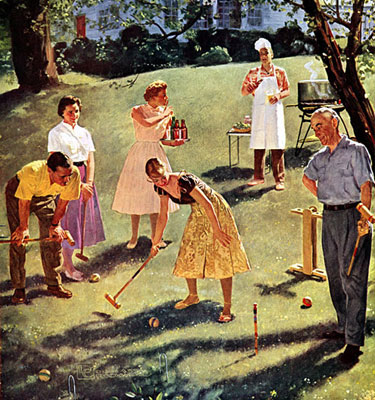 Be careful when you do a Google search for pasties. I was searching for the edible kind, the Cornish kind-- pastry stuffed with meat and vegetables. But, ummmm, you know, the other kind came up. Google misunderstood. It did try, though. Google asked: Did you mean to search for: all about pastry?
Be careful when you do a Google search for pasties. I was searching for the edible kind, the Cornish kind-- pastry stuffed with meat and vegetables. But, ummmm, you know, the other kind came up. Google misunderstood. It did try, though. Google asked: Did you mean to search for: all about pastry?
I had just returned to my office after a visit with Mark and Peggy Schultz, owners of a pasty (PASS-tee) shop in Turtle River, Minnesota, not far from where I live. After spending time in the Turtle River Pasties kitchen, watching Mark create very chubby pasties, all-butter pastry turnovers stuffed with beef and root vegetables, I was anxious to use the tips he shared with me to make my own batch.
I first learned of pasties over 20 years ago when I was in Ely for a state Legion baseball tournament. They were part of the line-up at the concession stand. A pasty is a little bit like a filled dumpling, but it's baked, not boiled. It's a little bit like a pie with a flaky crust, but it's eaten out of hand, not with a fork. It's a little bit like a sandwich filled with meat and vegetables, but there's no bread involved.
It seems pasties first appeared in Cornwall, England. Housewives formed piecrust around a filling of beef and root vegetables and then baked them, creating a convenient meal for the men to take down into the damp tin mines. The pasty, a hardy meal nestled into a crust, could be eaten by hand and was tasty hot, warm or cold.
 Eventually, immigrants brought the pasty to America. It's likely you will find pasties wherever there are mines. In Minnesota, they've become a traditional part of the food scene on the Iron Range.
Eventually, immigrants brought the pasty to America. It's likely you will find pasties wherever there are mines. In Minnesota, they've become a traditional part of the food scene on the Iron Range.
Mark and Peggy Schultz and their children had eaten pasties on trips through Michigan's Upper Peninsula. They decided to try making their own version. They started with a traditional style pasty, highlighting Mark's own smoked brisket. After much trial and error and lots of pasty-eating, they came up with the perfect pasty. Now, they offer a total of eight varieties.
Mark showed me how he makes the traditional beef pasty. Two things set it apart from all other pasties: the rich, flaky crust and the smoked brisket.
Mark cuts cubes of freshly smoked brisket to mix with potatoes, rutabaga, onions and carrots for his traditional-style pasties. A large smoker is in the kitchen right next to the ovens.
Once the pastry dough has been mixed, it goes through a sausage-stuffer. Mark cuts the dough as it comes out of the stuffer, getting just the right amount of dough to form each pasty.
Rather than roll the dough by hand, Mark gives each piece of dough two passes through the rollers. Now, it's ready to fill.
 Mark stuffs each pasty, one at a time, and crimps it closed with a very special kitchen tool. It's a professional-style crimper. And it sure does the job. Loaded with beef and vegetables and perfecty crimped, the pasties are ready to go into the oven.
Mark stuffs each pasty, one at a time, and crimps it closed with a very special kitchen tool. It's a professional-style crimper. And it sure does the job. Loaded with beef and vegetables and perfecty crimped, the pasties are ready to go into the oven.
Turtle River Pasties are sold hot and ready to eat or pre-baked and frozen, ready to heat up in your home oven.
I'm lucky. I can drive 10 miles or so to Turtle River Pasties to buy several varieties of delicious meals in a pastry crust and have a visit with Mark and Peggy Schultz at the same time.
Mark Schultz is not only a great pasty-maker, he's a super teacher. I did make my own pasties using all of the tips I learned from Mark. I used small chunks of tri-tip roast that I had leftover from another meal. And I made the pastry dough with lots of butter. I rolled the dough by hand, stuffed and crimped it.
And then, I ate one. Almost as good as a Turtle River Pasty.
If you don't live near Turtle River Pasties, you can make your own meal in a pastry pocket. I discovered it's not difficult. I share the recipe for my Not-So-Traditional Pasties, pictured above, in my column this week. Click here to go right to the recipe. It will save you a Google search!
Turtle River Pasties
12486 Hwy 71 Connection in Turtle River, 10 miles north of Bemidji on Highway 71, next to the 71 Mart Convenience Store
218-586-4004
Sue Doeden is a popular cooking instructor, food writer and integrative nutrition health coach. She is the host of Good Food, Good Life 365 on Lakeland Public Television. Her own hives full of hardworking bees and her love of honey led to the creation of her recently published cookbook, Homemade with Honey.


